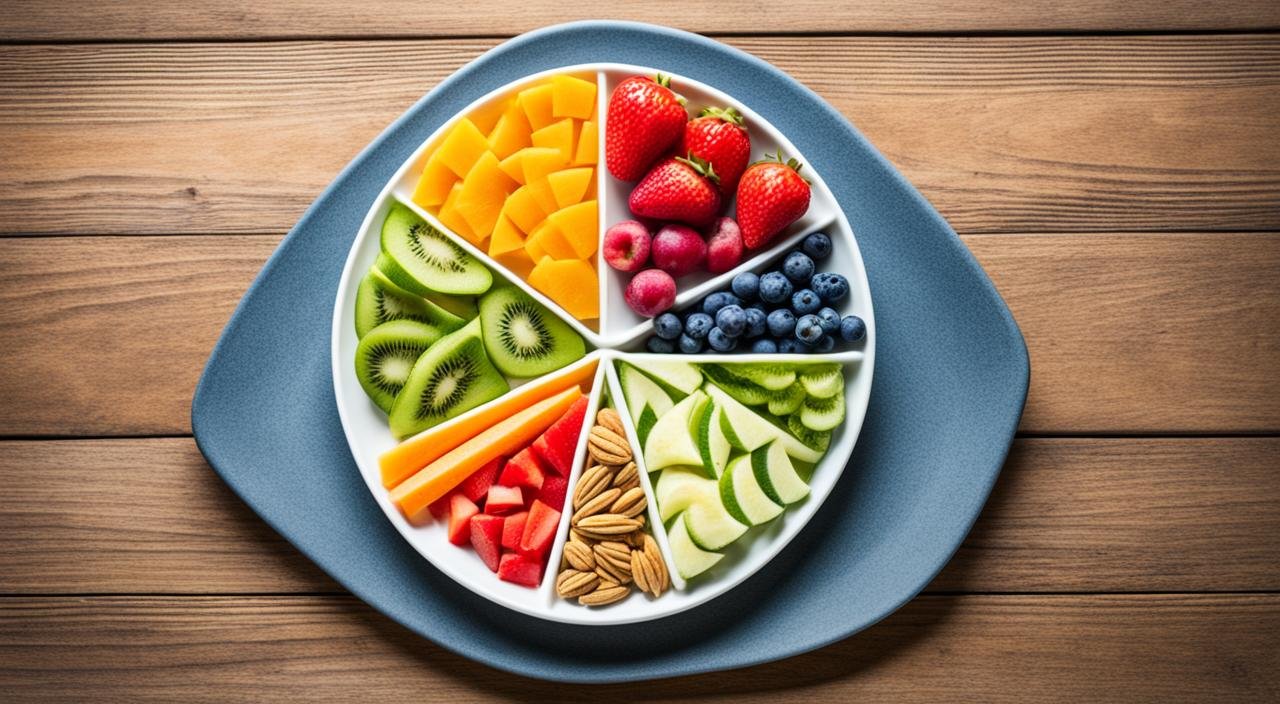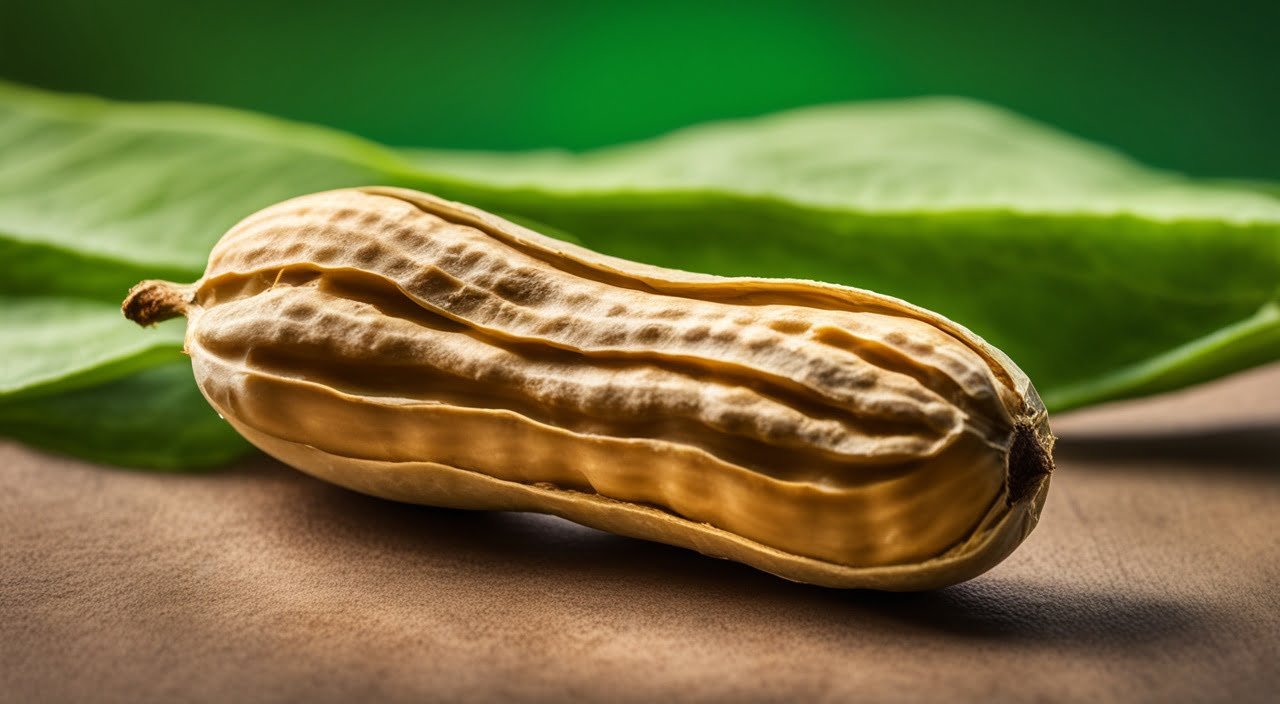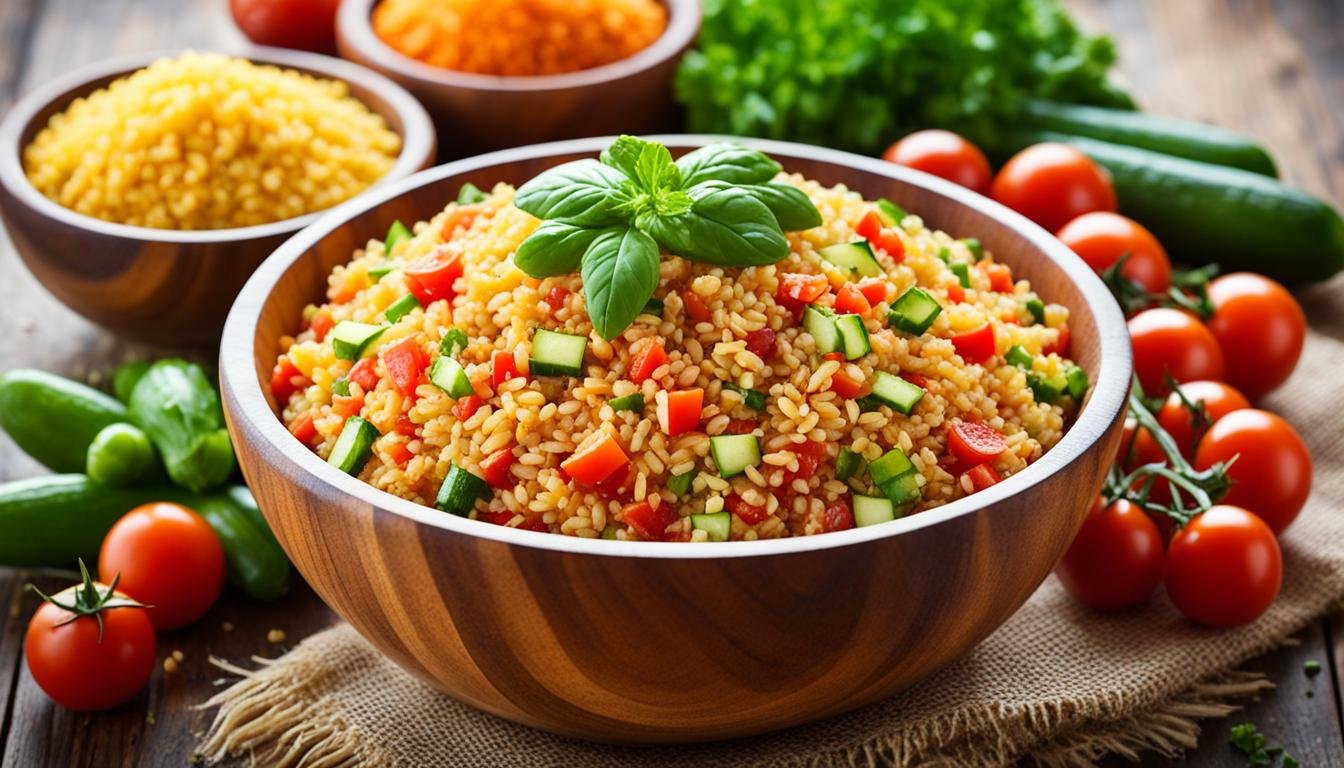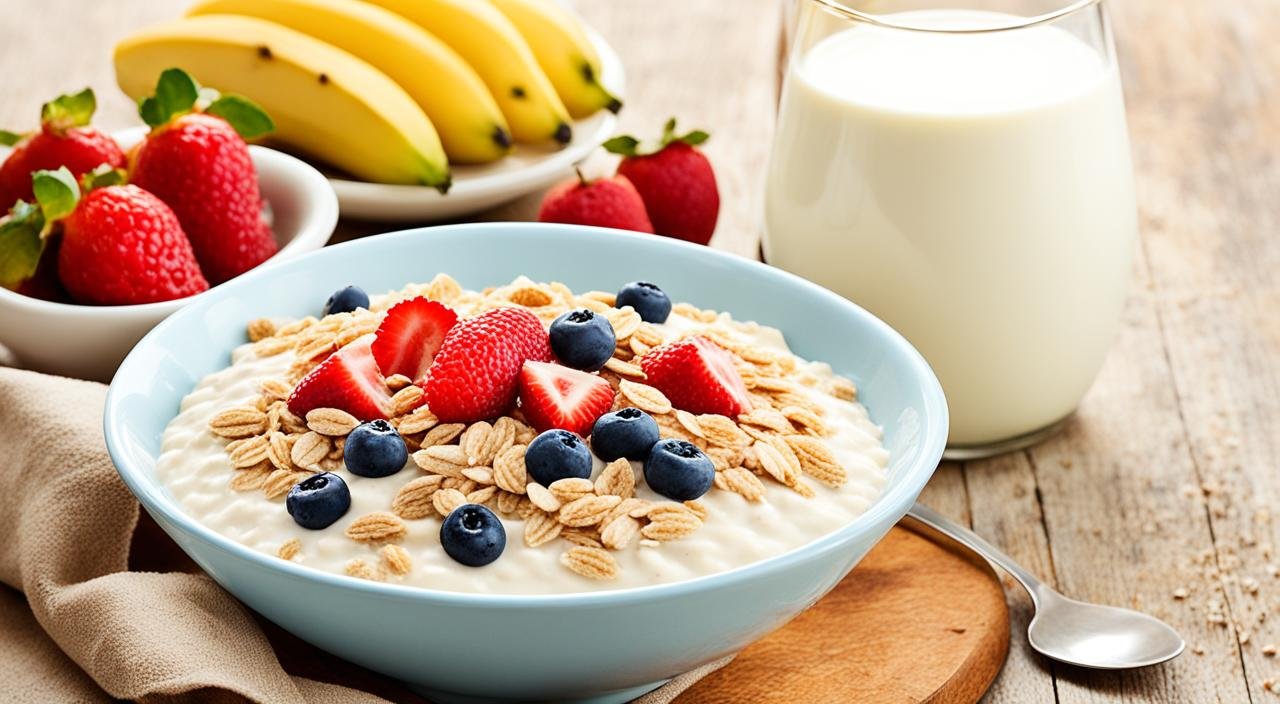Have you ever thought about how a gluten-free diet could change your health? It’s not just a new trend. For some, it’s a must-do that makes them feel better.
A gluten-free diet means no foods with gluten. Gluten is in wheat, barley, and rye. It’s key for people with celiac disease or other gluten issues. But, others might also see health perks from it.
We’ll look into how this diet affects gut health, inflammation, weight, and energy. If you’re thinking about it for health or wellness, knowing the benefits is important.
The U.S. Food and Drug Administration says foods labeled gluten-free must be very low in gluten. This rule helps keep people with celiac disease or gluten sensitivity safe.
Now, up to 30% of adults in the U.S. are trying to eat less gluten, even if they don’t have celiac disease. This has made more gluten-free foods available in stores and restaurants.
Key Takeaways
- Gluten-free diets are essential for managing celiac disease and gluten sensitivity
- The diet may improve digestive health and reduce inflammation
- It could lead to more energy and possible weight loss
- Picking the right foods is key to staying healthy
- Research is ongoing on its benefits for those without gluten issues
Understanding Gluten and Gluten Sensitivity
Gluten is a protein in wheat, barley, and rye. It’s key for many people’s digestive health. We’ll look into what gluten is and its effects on those with celiac disease and gluten intolerance.
What is Gluten?
Gluten makes bread chewy and helps it rise. It’s also used in many foods as a thickener. Foods labeled gluten-free must have less than 20 parts per million of gluten.
This rule helps people with celiac disease and gluten intolerance eat safely.
Celiac Disease and Non-Celiac Gluten Sensitivity
Celiac disease is an autoimmune disorder. It happens when gluten makes the immune system attack the small intestine. About 1 in 133 Americans have it, but 83% don’t know they do.
Symptoms include stomach pain, bloating, and diarrhea.
Non-celiac gluten sensitivity causes similar symptoms but doesn’t harm the intestine. People with this may feel “foggy,” get a rash, or have headaches after eating gluten. This condition doesn’t show up in blood tests and doesn’t harm the digestive system long-term.
A gluten-free diet is the main treatment for both conditions. But eating gluten-free without needing to can lead to obesity and metabolic syndrome. Always talk to a healthcare provider before changing your diet a lot.
We have a comprehensive article on Celiac Disease vs Gluten Sensitivity
Improved Digestive Health
A gluten-free diet can really help with digestive health. This is true for those with gluten sensitivity or celiac disease. Our patients have seen big improvements in their gut health after cutting out gluten.
Reduced Bloating and Gas
Going gluten-free often means less bloating and gas. Gluten can be hard for some to digest, causing discomfort. By avoiding gluten, many people see a big change for the better.
Relief from Diarrhea and Constipation
Gluten can lead to diarrhea and constipation. A gluten-free diet can make bowel movements more regular. This makes life much more comfortable.
Healing of the Gut Lining
For those with celiac disease, a gluten-free diet is key to healing the gut. Gluten can damage the small intestine in celiac patients. By not eating gluten, the gut can heal and work right again.
| Digestive Issue | Improvement on Gluten-Free Diet |
|---|---|
| Bloating | Significant reduction |
| Gas | Decreased frequency |
| Diarrhea | Regulated bowel movements |
| Constipation | Improved regularity |
| Gut Lining (Celiac Disease) | Progressive healing |
But remember, a gluten-free diet isn’t right for everyone. If you have food allergies or digestive issues, talk to a doctor before changing your diet.
Increased Energy Levels
Many people feel more energetic after going gluten-free. This isn’t just a story; there’s science to back it up. For those with celiac disease or gluten sensitivity, gluten can make them feel tired and sluggish.
By removing gluten from our diet, our bodies can take in nutrients better. This means we get more energy from a gluten-free diet. Many people say they feel more awake and sharp all day.
- Reduced inflammation in the body
- Better gut health and nutrient absorption
- Improved blood sugar stability
- Enhanced mental clarity and focus
Just cutting out gluten isn’t enough. We must make sure our gluten-free diet is full of nutrients to keep our energy up. This means eating lots of fruits, veggies, lean meats, and gluten-free grains.
| Symptom | Before Gluten-Free Diet | After Gluten-Free Diet |
|---|---|---|
| Fatigue | Common | Significantly reduced |
| Mental Clarity | Brain fog | Improved focus |
| Energy Levels | Low | Increased |
| Nutrient Absorption | Poor | Enhanced |
By following a well-planned gluten-free lifestyle, we can see a big increase in our energy. This leads to better overall health and a better life.
Potential Weight Loss
Are you thinking about trying a gluten-free diet for weight loss? Many people do this to help manage their weight. Let’s look into how going gluten-free might affect your weight.
Eliminating Processed Foods
Going gluten-free means you might stop eating many processed foods. Foods like bread and pastries are often high in calories. By avoiding these, you can eat fewer calories, which helps with weight loss.
Focusing on Nutrient-Dense, Whole Foods
Just being gluten-free doesn’t mean you’ll lose weight. The key is choosing the right foods. Eating foods full of nutrients is important. Foods like fruits, vegetables, lean proteins, and gluten-free grains should be your main foods.
Studies show that going gluten-free can lead to eating more fruits and veggies. This can help with weight loss. These foods are full of fiber, vitamins, and antioxidants, which are good for your health.
But, not all gluten-free products are good for you. Some can be high in sugar and unhealthy fats. These can stop you from losing weight. Always check the labels before buying.
Does gluten-free help with weight loss? It might, but it’s not sure. It depends on what you eat and how many calories you take in. For the best results, eat whole foods and talk to a nutritionist. They can help make a gluten-free plan that fits your weight goals.
Reduced Inflammation
A gluten-free diet can change the game for those fighting inflammation. It can greatly affect autoimmune conditions and help with joint pain. Let’s look at how going gluten-free might reduce inflammation in your body.
Impact on Autoimmune Disorders
For those with autoimmune conditions, a gluten-free diet is a strong ally. Non-Celiac Gluten Sensitivity (NCGS) leads to ongoing inflammation. Cutting out gluten helps many feel better and lowers inflammation. This is especially true for those with celiac disease, who react to wheat, rye, or barley.
Decreased Joint Pain and Stiffness
Joint pain and swelling are signs of gluten intolerance. An anti-inflammatory diet, often gluten-free, can lessen these symptoms. Adding foods like chia seeds, flax seeds, and omega-3 fatty acids is good. These foods help with joint pain and improve movement.
| Gluten-Free Anti-Inflammatory Foods | Benefits |
|---|---|
| Chia and Flax Seeds | Rich in omega-3s, reduce inflammation |
| Fruits and Vegetables | High in antioxidants, combat inflammation |
| Brown Rice | Whole grain, provides fiber and nutrients |
| Lean Proteins | Support muscle health, reduce inflammation |
| Turmeric | Potent anti-inflammatory spice |
It may take a few months to see big changes after starting a gluten-free diet. Be patient and watch what you eat to fight inflammation and boost your health.
Benefits of a Gluten-Free Diet
A gluten-free diet has many health benefits, especially for those with celiac disease or gluten sensitivity. It can make you feel better overall. But is it the right choice for you?
Improved Nutrient Absorption
For people with celiac disease, going gluten-free can really help. It affects about 1% of people. This diet helps your body absorb nutrients better.
Celiac disease can harm the gut, making it hard to get nutrients. By eating gluten-free, your gut can heal. This lets your body get the nutrients it needs.
Clearer Skin
Many people see better skin when they eat gluten-free. This is true for those with eczema or acne. They notice their skin looks clearer.
This might be because gluten can cause inflammation. Cutting out gluten can reduce this inflammation.
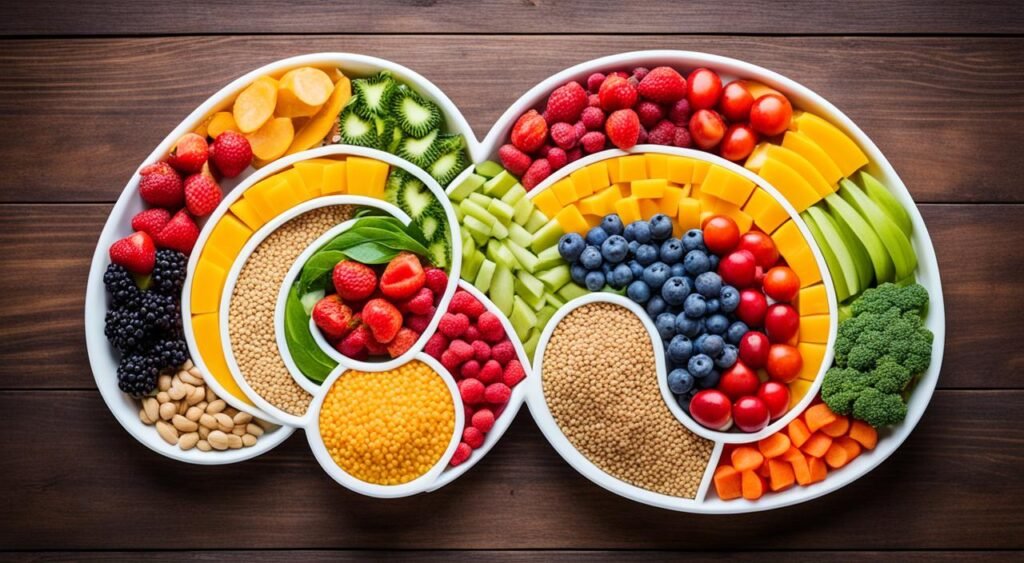
Enhanced Mental Clarity
Some people find they think more clearly on a gluten-free diet. They used to feel foggy or unfocused. But eating gluten-free helps them concentrate better.
This is great news for those wondering if gluten-free diets help with health. It’s not just about your stomach.
But remember, not everyone needs a gluten-free diet. Only 16-30% of people who think they’re sensitive to gluten really are. If you’re thinking about trying it, talk to a doctor first.
Navigating a Gluten-Free Lifestyle
Going gluten-free can be tough, but it’s doable with the right help. About 2 million Americans have celiac disease. Many others choose to eat gluten-free for health reasons. Let’s look at how to make this change work for you.
Reading Food Labels
It’s key to check food labels for a healthy gluten-free diet. Gluten is in many foods like bread, pizza dough, and baked goods. Watch out for it in flavored nuts, energy bars, and salad dressings too. Always choose products labeled as gluten-free to be safe.
Gluten-Free Alternatives and Substitutions
There are many gluten-free options available now. Rice, corn, quinoa, amaranth, and buckwheat are great for replacing wheat. For baking, try using potato, rice, or bean flour instead of wheat flour. These choices make it easy to find tasty gluten-free recipes.
Dining Out on a Gluten-Free Diet
Eating out can be hard, but it’s possible. Many places now have gluten-free menus, but be careful about cross-contamination. Always call ahead to talk about your needs. And, bring cards to explain your diet to the staff. Cooking at home gives you the best control over your gluten-free diet.
| Tips for Gluten-Free Living | Benefits |
|---|---|
| Join a support group | Get advice and emotional support |
| Use separate kitchen tools | Prevent cross-contamination |
| Explore new recipes | Discover delicious gluten-free meals |
By following these tips, you can easily live a gluten-free life. You’ll enjoy many healthy and tasty foods.
Conclusion
We looked at how a gluten-free diet can help with digestion and boost energy. About 37% to 45% of athletes follow this diet, not just those with celiac disease. But, deciding to go gluten-free depends on your own needs.
Going gluten-free can be good for some, but think about the risks too. Gluten-free foods might not always be as healthy and can cost more. They might also be low in fiber and minerals. So, talking to a doctor before starting a gluten-free diet is a smart move.
Not everyone needs to avoid gluten. If you’re feeling off or have health worries, talk to a doctor. They can tell you if a gluten-free diet is good for you. They’ll also help you eat well and stay healthy.
I’m Dr. Shivani, a Kolkata-based nutritionist since 2015. After 10 years of igniting a love for healthy eating in young minds as a High School nutritionist teacher, I now help individuals unlock their full potential through personalized diet plans. My passion for writing and sharing nutrition knowledge (through blogs and observations) keeps my practice fresh and fuels my love for the field!

